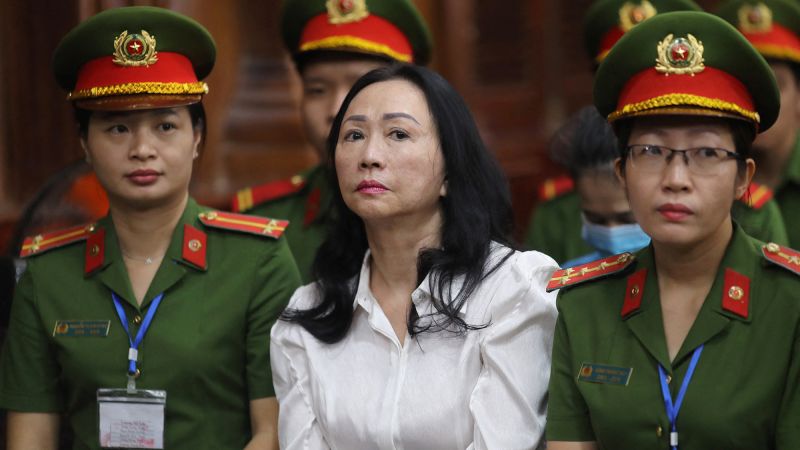A court in Vietnam has sentenced real estate tycoon Truong My Lan to death over her involvement in a $12.46 billion financial fraud case, the largest in the country’s history. The trial, part of a broader campaign against corruption led by the ruling Communist Party leader Nguyen Phu Trong, resulted in Lan being found guilty of embezzlement, bribery, and violations of banking rules. Lan, the chairwoman of Van Thinh Phat Holdings Group, maintained her innocence throughout the trial and plans to appeal the verdict, which includes a death sentence for embezzlement and 20 years for the other charges.
Vietnam often imposes the death penalty for violent offenses and economic crimes, leading to the execution of hundreds of convicts in recent years. In addition to Lan, 84 other defendants in the case received sentences ranging from probation to life imprisonment. Lan’s husband, Eric Chu, and her niece were also convicted and sentenced to jail time. Lan’s rise from a cosmetics trader to the founder of a successful real estate company was overshadowed by her involvement in the embezzlement of billions of dong from Saigon Joint Stock Commercial Bank, which resulted in the bank’s collapse and subsequent state bailout.
Lan’s actions, which included arranging unlawful loans to shell companies and bribing officials to avoid scrutiny, eroded public trust in the leadership of the Party and State. The resulting restructuring of the bank involves establishing the legal status of assets used as collateral for loans and bonds issued by Lan’s company, with the total value of the bonds reaching $1.2 billion. The fallout from Lan’s crimes has had a significant impact on Vietnam’s financial sector and raises questions about the effectiveness of regulations and oversight in preventing such large-scale fraud.
The broader context of Vietnam’s anti-corruption campaign, known as “Blazing Furnace,” has led to the prosecution of numerous high-profile individuals in both the government and business sectors. The pervasiveness of corruption in Vietnam is highlighted by reports of bribery being common in public services, including healthcare. The crackdown on corruption is a key priority for the Vietnamese government in restoring public trust and integrity in governance. Lan’s case serves as a stark reminder of the consequences of financial misconduct and the need for stronger enforcement mechanisms to prevent similar cases from occurring in the future.
Despite her previous influence and success in Vietnam’s financial world, Lan’s downfall has exposed the vulnerabilities and gaps in the banking system that allowed her crimes to go undetected for several years. The impact of her actions on the banking sector and the broader economy will likely be felt for years to come as authorities work to unravel the complex web of transactions and assets tied to her fraudulent activities. Lan’s case underscores the importance of transparency, accountability, and strong regulatory enforcement in maintaining the stability and integrity of financial institutions in Vietnam and around the world.


